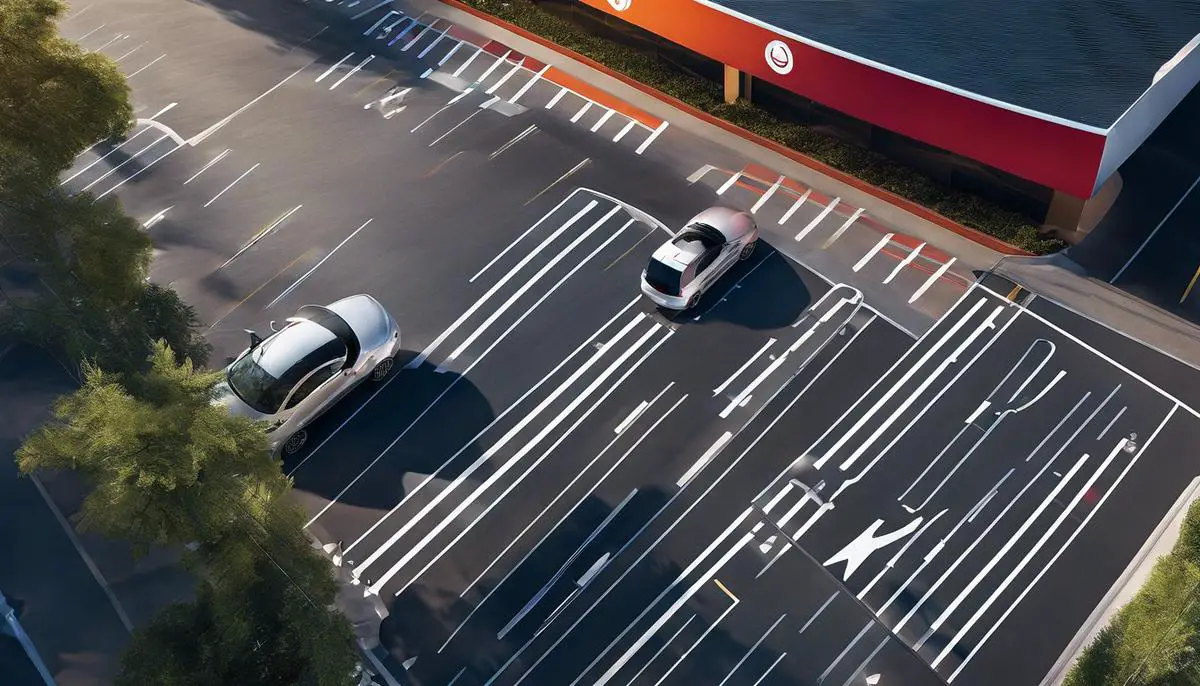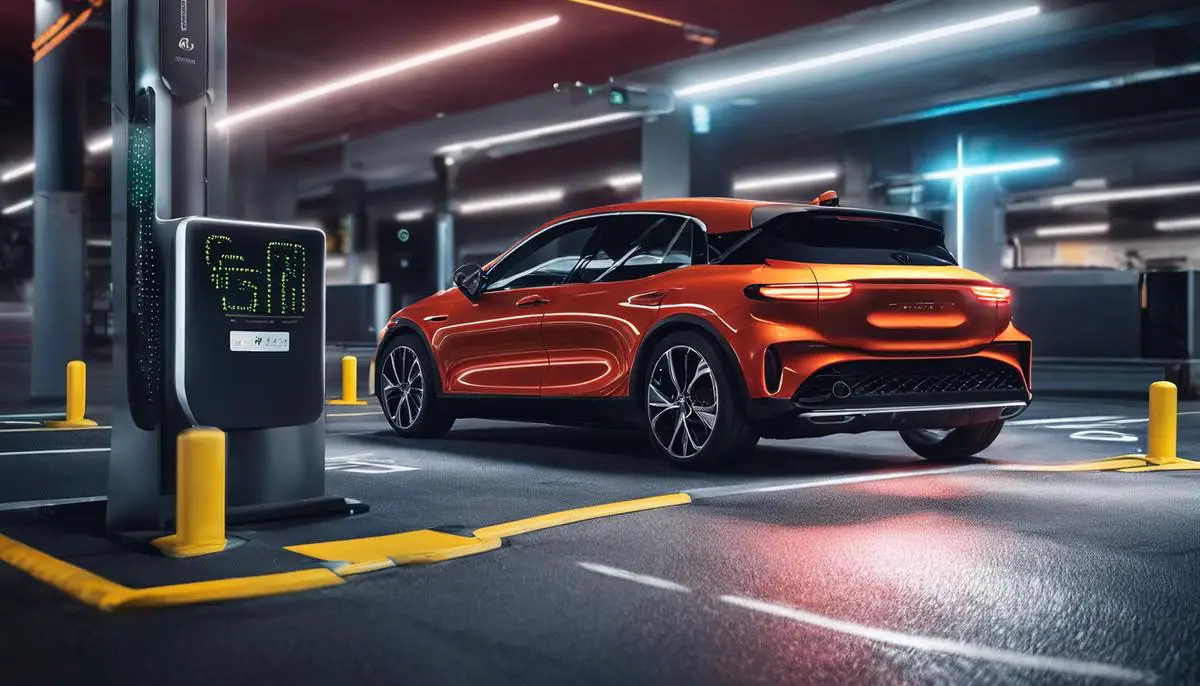Innovations in AI: Transforming Car Parking Management
In our interconnected world of digital advancement, Artificial Intelligence (AI) is a revolutionary technology ingrained in a myriad of applications, simplifying complex operations and elevating user experiences. One such realm that has been significantly influenced by the AI revolution is Car Parking Management. An emergent tool deployed worldwide to amplify operational efficiency, AI has redefined traditional parking systems with a heightened focus on sustainability, accessibility, and seamless usability. This progressive exploration aims to delve deeper into the ontology of AI and its transformative impact on car parking management by outlining the groundbreaking AI technologies available today and detailing their real-world applications for enhanced convenience.
Understanding AI and its use in car parking
The advent of AI technology is drastically re-engineering car parking management, effecting efficiencies and advancements in an arena that was once merely imagined. How precisely, you may ask, is this revolutionary shift occurring?
Firstly, AI’s role in redesigning parking is most evident in its automation capabilities. Technological advancements have led to the creation of smart parking systems using AI. The AI integrated into these systems enables them to identify vacant parking slots and direct drivers quickly and effectively, saving valuable time and reducing fuel consumption associated with the traditional hunt for parking. Such systems are rapidly being adopted by malls, airports, universities, and numerous other public spaces, thus showcasing the significant impact AI has had on enhancing parking management.
Secondly, AI has become instrumental in boosting the revenue linked to parking management. AI-powered parking systems are integrated with advanced payment methods, allowing seamless payment transactions. A user can pre-book a parking spot and pay digitally—a convenience that further streamlines parking processes. Furthermore, the management can use AI tools to analyze parking data, enabling more strategic pricing based on peak hours, holiday season, or specific events.
Security is yet another front where AI is making striking contributions. The advanced algorithms of AI can recognize the license plates of the vehicles, providing a solid support system for security management. Unauthorized parking can be deterred, and any suspect vehicle can be efficiently tracked down.
When it comes to improved efficiency, predictive analysis—a key advantage of AI technologies—stands at the forefront. AI systems can predict parking demands based on past data and patterns, enabling the management to make predictive adjustments and plan accordingly. Predictive analysis can be a game-changer during peak times, where anticipating higher demands and preparing for them becomes crucial.
The next arena is the reduction of administrative tasks. AI systems allow the parking management to automate several routine administrative tasks, such as handling payment collections and maintaining complex records. The scope for human error reduces considerably, and the entire management becomes incredibly systematic.
Lastly, AI technology significantly contributes to environmental sustainability. Reducing the time spent on searching for parking space cuts down on carbon emissions, making a massive difference to pollution levels. It’s not just about the efficient use of space anymore—it’s about intelligent use for ecological advantage.
In conclusion, the transformation is here, and it’s only the beginning. From digitalization to automation, security enhancement, predictive analysis, and greener practices, AI technology is reshaping car parking management impressively. As it continues to advance, the potential for creating even smarter cities becomes all the more real. This is the tech lover’s paradise—where innovation propels mundane parking into an exciting, technology-driven undertaking.

Exploring AI-based parking solutions
The Emergence of Top-tier AI-based Parking Solutions
The application of artificial intelligence (AI) in various industries has been a transformative journey, and the parking management industry has been no exception. Beyond the already covered concepts of AI and its flexibility in pairing with smart systems, revenue enhancement, and boosting security measures in parking management, let’s dive deeper into exploring some of the significant AI-based parking solutions changing the industry landscape.
First on the docket is Stanley Robotics’ valet parking solution. This innovative and charming robot, playfully named “Stan,” takes the wheel, both metaphorically and literally. Stan takes charge of vehicles by grasply them by the wheels and shuttling them to vacant parking spots, optimizing parking space whilst eliminating the stress and hassle of parking for drivers. The all-inclusive system that includes automatic gates to ensure security, is an innovative example of the synergy between AI and robotics for parking solutions.
Next in line is Bosch’s automated valet parking. This technological marvel works seamlessly with a smartphone’s command to take, park, and retrieve cars from designated space autonomously. By integrating AI with sensor technology, Bosch has stunningly crafted a future-ready solution which doesn’t just foster convenience, but also streamlines traffic and boosts safety measures in the parking lot.
Further demonstrating the vast limits of AI-based solutions is Nwave’s smart parking system. This tech marvel provides drivers a seamless parking experience by continuously monitoring every parking spot through ultra-thin, wireless parking sensors. When combined with machine learning algorithms, this technology provides real-time data which maximizes the utilization of parking space and assists in traffic management.
Taking the level of sophistication a step further, Cleverciti brings forth its AI-driven parking guidance system. This pinnacle of innovation in parking management revolves around intelligent sensors which utilize AI for processing and interpreting data. The real-time data processing aids in detecting free and occupied parking spaces, while the system guides drivers to the most suitable spot and even anticipates future parking situations.
Finally, ending this exploration on a powerful note, NuPark stands as a remarkable model of AI implementation. This license plate recognition (LPR) system hinges on AI to scan and monitor parking lot entrants and exits accurately, replacing traditional manned checkpoints. This system not only strengthens security but also facilitates a streamlined flow of vehicles, hence diminishing congestion and associated stressors in parking facilities.
So, beyond the initial integration, AI is relentlessly creating a domino effect in the parking management industry. Each of these unique AI-based parking solutions has its own set of pivotal advantages reshaping the future of parking, but they all underline the potential for the continued advancing and evolving implementations of AI in transformative real-world applications.

Implementing AI in your own parking management
Let’s delve deeper into the critical considerations that come into play when implementing AI in car parking management:
Firstly, there’s the question of user experience. Enhancing customer satisfaction is a key motivator for implementing AI, and there is a need to ensure this is maintained throughout the interaction with the system. This requires a user-friendly interface, accessible information, reliable performance, and swift resolution of glitches. Brands like Nwave and NuPark have showcased how a seamless, user-oriented experience can be achieved with their easy-to-use smart parking systems and license plate recognition (LPR) technologies.
Next, let’s talk about data. Any application of AI is heavily reliant on the quality and quantity of available data. From parking patterns in specific locales to recognizing number plates accurately under different weather conditions – detailed and expansive data collection underlies effective AI performance. This data utilization also ties in with IoT devices, RFIDs, sensors and cameras. Combining this data with machine learning algorithms allows the system to continuously learn and improve, making data an absolute powerhouse in the implementation process.
Stability and reliability are also a significant aspect. AI-based parking systems, like any other technology, need to be constantly monitored and updated to ensure its functionalities are working properly. Proper testing, routine software updates and maintaining the right infrastructure are essential components of this.
Let’s also consider potential legal and ethical implications. Regulations regarding data capture, usage and privacy vary by region. Adherence to these regulations is essential to avoid legal issues. Ensuring the human dignity of users is respected through fair, transparent, and privacy-conscious data practices is a must.
Budgeting and financial planning can’t be ignored either. While AI implementation can significantly boost revenues and lower costs in the long run, the initial investment can often be substantial. Cost must be backed by a robust analysis of the potential return on investment along with a feasible timeline.
Lastly, we must look at the integration factor. For full effect, AI parking management systems need to integrate with existing parking infrastructures or city development plans. This includes the consideration of how the AI system can synchronize with tech used by other local transportation or traffic authorities.
All these factors signal a radical shift from traditional parking, moving us towards an efficient, sustainable and technologically advanced solution. While STANLEY Robotics and Bosch are already trailblazers in this domain with their cutting-edge technology in automated valet parking, the untapped potential within the AI-centric car parking management spectrum signals a bright future as yet.
Early adopters could gain a significant edge, setting trends and shaping the evolution of the urban landscape, one parking space at a time. These considerations bring us one step closer to realizing the full potential of smarter cities, where technology and convenience go hand in hand.

AI’s mammoth potential continues to revolutionize car parking management, promising to herald an era of organized and hassle-free parking. With the advent of automatic parking systems, parking reservation facilities, parking enforcement, and vehicle tracking systems, AI is increasingly offering resourceful solutions to traditionally problematic areas. However, with great technological power comes an even greater responsibility to ensure ethical practices and optimal resource allocation. As we steadily traverse a path towards a world heavily reliant on AI, it is incumbent upon us to harness the potential of this technology mindfully, considering every facet of compatibility, logistics, resource management, and ethical issues. Thus, we prepare ourselves not just to adapt to the AI revolution in car parking management but to thrive in it.
Writio: The AI wordsmith behind this masterpiece. This article was crafted by Writio, the ultimate content creation wizard.
